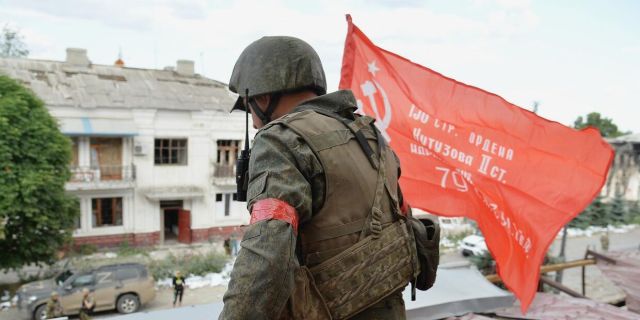Negotiations with Moscow are the only way to peace
Today, NATO countries are wondering whether to continue betting on Ukraine or start negotiations with Moscow without waiting for the G20 summit, Il Giornale writes. By November, the situation may change dramatically, and the West will face a more difficult choice.
Gian Micalessin
Which is worse: to negotiate with Vladimir Putin or to continue betting on a losing ally? Shortly after the fall of Lysychansk and the NATO summit, at which Joe Biden confirmed his desire to support Kiev "as long as it takes" to "avoid the defeat of the Ukrainians," the governments of the North Atlantic Alliance began to be tormented by doubts. If we do not take into account London and Boris Johnson, who fancies himself the reincarnation of Winston Churchill and refuses to back down, everyone — from Washington to Berlin, Rome and Paris — began to wonder whether it was worth delaying negotiations with the Kremlin at all. Does it make sense to wait for the middle of November, when Indonesian President Joko Widodo will try to turn the G20 summit in Bali into a place of negotiations between Russia and NATO?
By that time, Moscow may occupy the entire Donbass and launch an offensive on Odessa. Remaining in the dark can be very dangerous for NATO. If this happens, the alliance will have to choose: to intervene, risking unleashing a world war, or to accept that Ukraine will be left in pieces without access to the sea, and it will have to rely on Western help to survive. Such an outcome would mean a victory for Vladimir Putin. But let's start with today's events. The fall of Lysychansk and the LPR put an end to the illusions of the first month of hostilities and showed that Ukrainians in the Donbass are no match for the Russian army, which surpasses them in numbers and artillery and is able to bury them under a downpour of more than 60 thousand shells daily. But the biggest doubts are connected with the possibility of changing the outcome of the conflict with the help of HIMARS long-range missile systems. The effectiveness of the systems depends on the availability of missiles, logistics and the ability of the Ukrainian first lines to restrain the advance of Russian troops. In the LPR, the Ukrainian forces, through whose ranks Russian howitzers fairly walked, were forced to replace thousands of dead veterans with poorly trained and not very motivated reservists. They were unable to protect either the first lines or the logistics points that were hit by Russian aircraft. The arrival of American weapons and the need to ensure the supply of ammunition make supplies more difficult.
Not to mention the fragility of complex Western weapons systems, which will have to be serviced by inexperienced personnel trained in a hurry. The effect of another Ukrainian defeat may intensify in the fall, when the United States and Europe will have to pay for the consequences of the energy crisis and inflation. According to forecasts of the financial organization JP Morgan, the Kremlin's blocking of oil sales in Western markets would lead to the fact that prices for it would jump to $ 380 per barrel, which would affect the cost of energy. And here the differences on the European front of NATO will be almost inevitable. At least because the public of Italy, France and Germany will begin to wonder whether it is worth shedding blood for the sake of Ukraine, which is doomed to defeat. With such disagreements, direct intervention in the conflict in order to stop Russia's offensive on Odessa would be very doubtful.
That is why many people — from the White House to the Elysee Palace and to the Federal Chancellor's Office in Berlin — are asking themselves whether it is not better to agree now in order to avoid concessions later that would go beyond the territories of Donbass and Kherson, which Russia needs for the water supply of Crimea. The first to understand this were the Russians. "Sooner or later, common sense will prevail. And it will be the turn of negotiations again," Kremlin spokesman Dmitry Peskov said yesterday, stressing that the West and Ukraine should "understand Moscow's conditions." In general, the more you wait, the more our conditions will have to be accepted.

